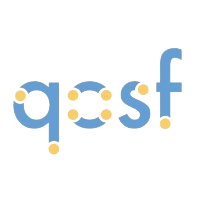Documentation
 qBraid
| QIR
qBraid
| QIR
qBraid-SDK extension providing support for QIR conversions.
- Release:
0.2.0.dev
Python package for generating QIR programs from Cirq, and other high-level quantum programming languages.
This project aims to make QIR (Quantum Intermediate Representation) accessible via the qBraid-SDK
transpiler, and by doing so, open the door
to language-specific conversions from any and all high-level quantum languages supported by qbraid.
“Interoperability opens doors to cross-fields problem-solving.” - QIR Alliance: Why do we need it?.
Installation
pip install qbraid-qir
Test container
Docker image providing an environment for testing and executing QIR programs with the qir-runner package.
Clone the qbraid-qir repository:
git clone https://github.com/qBraid/qbraid-qir.git
cd qbraid-qir
Build the QIR runner image:
docker build -t qbraid-test/qir-runner:latest qir_runner
Start the container running a Jupyter Server with the JupyterLab frontend and expose
the container’s internal port 8888 to port 8888 of the host machine:
docker run -p 8888:8888 qbraid-test/qir-runner:latest
Visiting http://<hostname>:8888/?token=<token> in a browser will launch JupyterLab, where:
The hostname is the name of the computer running Docker (e.g.
localhost)The token is the secret token printed in the console.
Alternatively, you can open a shell inside the running container directly:
docker exec -it <container_name> /bin/bash
Acknowledgements
This project was conceived in cooperation with the Quantum Open Source Foundation (QOSF).



